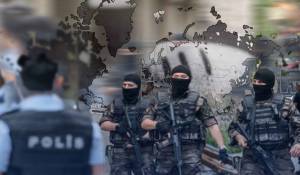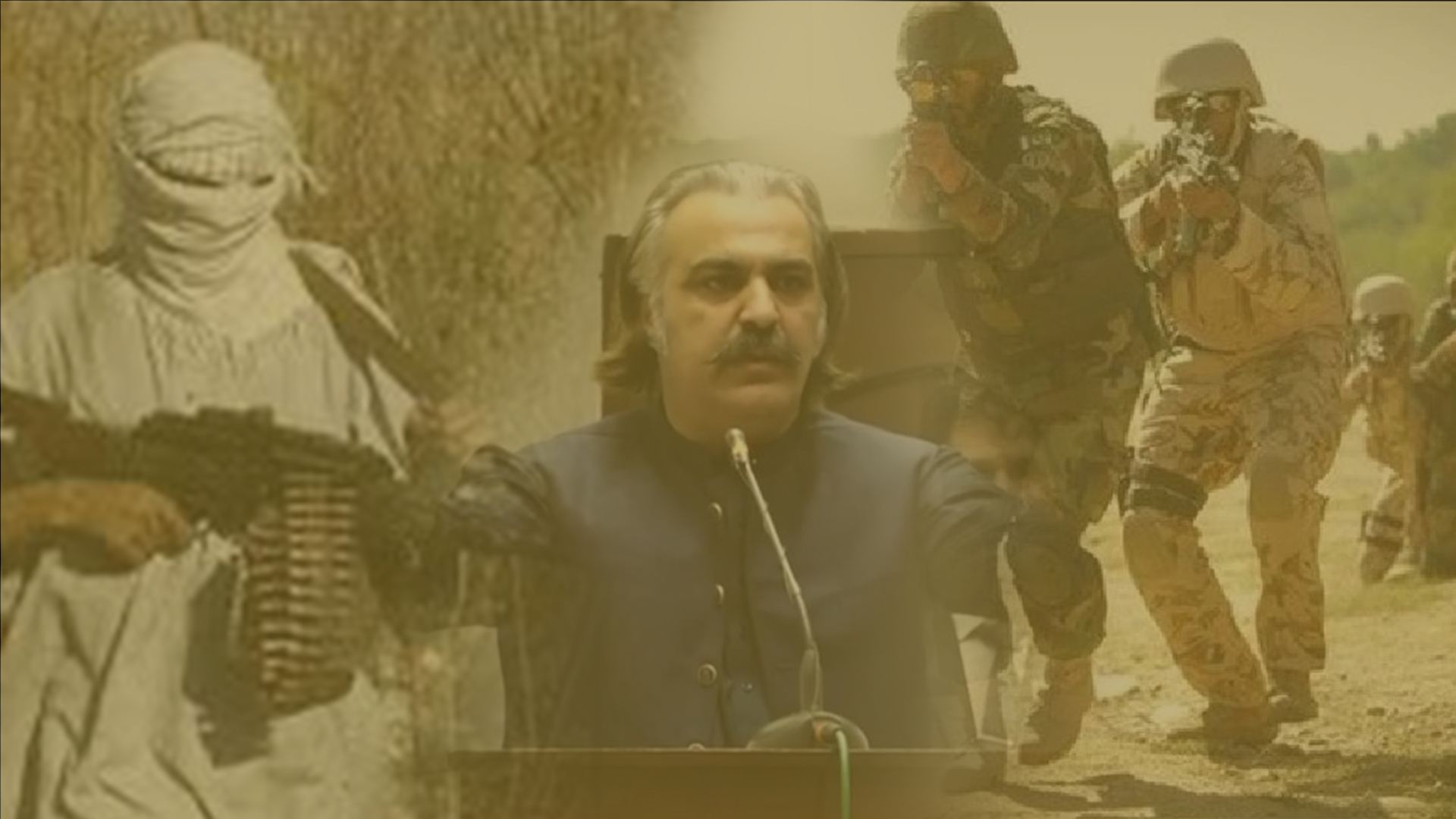
Ihsanullah Tipu Mehsud

March 05, 2026

On Wednesday, Khyber Pakhtunkhwa Chief Minister, Ali Amin Gandapur expressed frustration over the federal government and particularly the country’s military establishment policies regarding combatting militantcy in Khyber Pakhtunkhwa and public's eroding trust. He emphasized his desire to engage with neighboring Afghanistan to address the issue of terrorism.
"I've repeatedly stated that my police and people's trust has dwindled. It seems no one cares. I've offered to send a delegation to Afghanistan, but no one listened. Should I continue tolerating this behavior as my people's blood is shed? I'm making an announcement: if you have a policy, keep it to yourself. My people are dying due to your policy. I'll engage with Afghanistan as a province. I'll send a delegation and God willing, resolve the issue through dialogue to save lives. I'm accountable to Allah and my voters. Whether you agree or disagree, I'll proceed,” he said while speaking to a gathering of lawyers in the provincial capital, Peshawar.
The Chief Minister's speech, implicitly criticized the country's military establishment and its counterterrorism policy in Khyber Pakhtunkhwa, without directly naming them.
On the other hand, Pakistan's federal government has consistently ruled out talks with the Pakistani Taliban (TTP). The country's Defence Minister, Foreign Office, and Army Chief have all rejected the possibility of renewed peace talks with the TTP, following the collapse of previous negotiations mediated by the Afghan Taliban in 2022.
In April, this year, Foreign Office spokeswoman Mumtaz Zahra Baloch stated during a weekly press briefing, "Pakistan is not holding any talks with the terrorist organisation, the TTP. We have no plans to hold talks with TTP."
Earlier, in August 2023, Pakistan Army Chief General Asim Munir had reiterated this stance while speaking with tribal elders from the erstwhile FATA in Peshawar, saying, "The surge in terrorism in recent past is a futile effort on the part of terrorists to get the talks re-initiated, however, there is no option for these terrorists except to submit to the writ of state of Pakistan before they are decimated, if they persist on their wrong path."
Meanwhile on Thursday, Defence Minister Khwaja Asif stated in the National Assembly that no province has the authority to engage in direct negotiations with any foreign country, a remark seen as a rebuke to the Khyber Pakhtunkhwa chief minister’s recent announcement to engage with Afghanistan on terrorism.
The Khyber Pakhtunkhwa chief executive's statement on engaging in talks with the Taliban-led Afghan interim government regarding the Pakistani Taliban has ignited a debate in both the province and Islamabad. In Islamabad, some argue that the chief minister lacks constitutional authority to engage in foreign talks without federal government consent. In contrast, PTI lawmakers assert that Khyber Pakhtunkhwa should take the lead in peace efforts, given its frontline status in the conflict. They cite federal institutions, including the military, as lacking understanding and making interventions that prove counterproductive, causing a growing trust deficit between the province and federal government both at governments and public levels.
A broad consensus should emerge in Khyber Pakhtunkhwa, encompassing the provincial government, opposition politicians, tribal elders, religious scholars and youth to spearhead any potential renewed talks with the TTP, if the occur. The process should not only be confined to provincial government. This province-led initiative should leverage all available resources to contain violence and receive full federal support. However, achieving consensus at both provincial and federal levels is crucial before proceeding, as its absence may worsen the situation. Therefore, the Khyber Pakhtunkhwa government must be given a central role in guiding kinetic actions, political and social engagement, development, and other relevant matters, rather than merely being consulted.
However, engaging the Taliban through a peace process to address the TTP issue won't be an easy task at all. The Taliban's repeated offers to Pakistan to mediate between the Pakistani government and the TTP come with expectations of quid-pro-quo concessions from Pakistan, not simply pressuring the TTP to abandon the fight and surrender to Pakistani authorities. The question remains whether Pakistan will be willing to entertain these concessions and negotiate a mutually acceptable deal.
During previous negotiation rounds between Pakistani Taliban and the Pakistani government, it was observed that the Afghan Taliban, as mediator of the process, were eager to secure a territorial haven for the Pakistani Taliban, where they could seek refuge independently. Specifically, within the Pakistan’s former, Federally Administered Tribal Areas (FATA), which borders Afghanistan and is the birthplace of Pakistani Taliban.